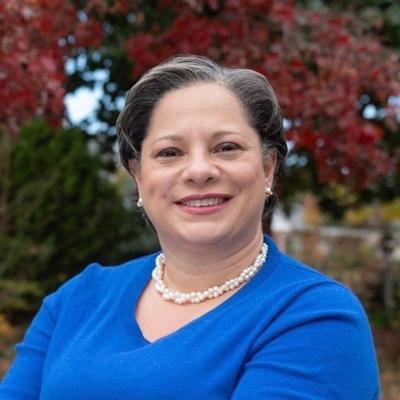Ėķ▒§░õ▒ß▓č░┐▒ĘČ┘╠²ŌĆö┬Ā D-4th, proposes to go where no member of Congress has gone before with legislation to establish standards for "celestial time," beginning with the moon, as the United States renews its commitment to lunar exploration.
McClellan, D-4th, has introduced the which would put into law a new initiative by to create standards to synchronize the differences between time on Earth and other planetary bodies.
The first-term congresswoman from Richmond has an unusual informal adviser in her space quest: her son, Jackson, who will turn 14 next month.
People are also reading…
McClellan said that Jackson, whom she said "wants to be an astronomer and is obsessed with all things space," gave her the thumbs up with the idea, which she said marks the first time a member of Congress has proposed time standards for other bodies in space.
"We are entering a new era of United States space exploration and have an exciting opportunity to lead on standards that drive global competitiveness," she said in announcing the legislation. "As we pursue increasingly complex activities on the Moon and beyond, the need for a celestial time standard will grow."
McClellan serves on the House Science, Space and Technology Committee, which oversees the National Aeronautics and Space Administration, or NASA, which has a significant presence in Virginia at the Wallops Island Flight Facility on the Eastern Shore. The facility is home of the Virginia-owned Mid-Atlantic Regional Spaceport, which launches a variety of rockets for commercial, civil and defense missions in space, include resupply of the International Space Station.
She is a member of the Space and Aeronautics subcommittee.
McClellan already has taken her son's advice once in questioning NASA Administrator Bill Nelson in a budget hearing on May 3 about the future of the Chandra X-Ray Observatory in Cambridge, Mass. The 25-year-old observatory may be ending its work under proposed cuts to NASA's budget.
"He's very concerned, as I know a number of astronomers are, that this could leave a blind spot in the collection of X-ray images in the future," she told the administrator, asking him for assurance that "NASA is still committed" to that mission.
Nelson replied that NASA is considering "alternative operating scenarios" for both Chandra and the Hubbell Space Telescope in the face of budget constraints, but she said her question "is an example of how important it is that NASA make science fun and exciting for kids."
"The images that he has seen from these telescopes have gotten him more interested and fascinated in (science, technology, engineering and mathematics) subjects in school than anything else that his father and I could have done," she said.
Nelson replied, "I can't spend for NASA money that we don't have."
Space flight has been a personal interest for McClellan since her childhood in Ettrick, in southern Chesterfield County, but she said, "This is the first time I've ever been in a position to craft policy about space exploration and space flight."
The search for celestial time standards may seem, well, out there, but it's essential to successful missions to the moon and other planetary bodies that are in zones of their own.
"The most important point that most people don't realize is that time works differently on the moon," McClellan said.
Time varies on Earth by zone, but "whatever time zone you're in, the minutes are the same," she said.
On the moon, time moves a 58.7-microsecond difference ahead of time on Earth.
"That doesn't sound like a lot, but it starts to add up," McClellan said.
The White House recognizes that the time difference has to be reconciled for lunar exploration to succeed.
"Knowledge of time in distant operating regimes is fundamental to the scientific discovery, economic development, and international collaboration that form the basis of U.S. leadership in space," states Arati Prabhakar, director of the president's Office of Science and Technology, in an April memorandum.
The memo directs NASA and other federal agencies - departments of commerce, defense, state and transportation - to develop a final strategy for lunar time standardization by the end of 2026. It also tasks them with considering a Coordinated Lunar Time standard as part of its annual Moon-to-Mars Architecture Concept review by the end of this year.
McClellan introduced the legislation because, she said, "This is probably a good thing to make permanent."
"If the point of space flight is to return to the moon and beyond, then, yes, this is something we need to put in place," she said. "We need to start, and the sooner the better."












